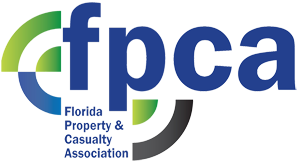House Bill 1107 proposes to reduce the catastrophe reinsurance provided by the Florida Hurricane Catastrophe Fund to insurance companies writing homeowners insurance in Florida from $17 billion to $14 billion over a period of three years. As currently proposed, this reduction will be at the expense of consumers that will have to pay more in premiums. The Florida Property & Casualty Association (FPCA) supports reducing the liability exposure of the Florida Hurricane Catastrophe Fund (FHCF); however, the FPCA would propose reducing the amount of coverage while also lowering the attachment point to make the change rate neutral to the consumer.
First and foremost, the passing of HB 1107 will cause premium rates to increase, exactly what the industry is trying to avoid doing to consumers in these difficult economic times. Reducing the FHCF coverage will force insurance companies to replace this much needed protection by going into the multi-billion dollar private reinsurance market where these companies will have to pay much higher rates. Then, these higher catastrophe reinsurance rates will be passed on to consumers in rate filings that the Florida Office of Insurance Regulation will be compelled to approve.
Second, HB 1107 will only benefit private reinsurance companies. As Palm Beach Post reporter Charles Elmore stated recently: “That move is likely to create business for private reinsurers, typically offshore and foreign companies whose unregulated rates often run more than double what the Cat Fund costs.” Rather than sending premiums, profits and capital to offshore, foreign companies, the FPCA believes this business needs to stay in Florida.
Quoting from the law that created the FHCF: “A state program to provide a stable and ongoing source of reimbursement to insurers for a portion of their catastrophic hurricane losses will create additional insurance capacity sufficient to ameliorate the current dangers to the state’s economy and to the public health, safety and welfare.” Thus, the FHCF was created for, and its very existence is based upon, providing lower rates than private reinsurers for catastrophe reinsurance so that those lower rates can be passed on to Florida homeowners.
The FPCA believes that if any change should be made to the FHCF, it should be lowering the attachment point for FHCF coverage. Insurance companies must first pay several million dollars in losses, which is known as its “retention,” before the FHCF will pay for claims within its coverage. Many insurance companies purchase catastrophe reinsurance for this first dollar layer of retention, but because losses in this layer are the most probable of occurring, reinsurance rates for this protection are the highest of all. If the FHCF attachment point was lowered thereby reducing the dollar amount of claims that insurance companies had to retain, the even lower cost of catastrophe reinsurance could be passed on to consumers.
Most importantly, lowering the attachment point will cause insurance companies to be more competitive with the Citizens Property Insurance Company, which represents a far greater threat to Florida citizens than a shortfall in the FHCF does. Florida insurers are prepared to take thousands of policies out of Citizens, but only if the rates are actuarially sound. Lowering the attachment point will accomplish this goal.
The FHCF is opposed to lowering its attachment point because it increases the probability of a covered event when the CAT Fund perceives that it is already overexposed. However, a recent actuarial study established that the aforesaid probability only increased from 12% to 15.1%, a mere 3.1% increase.
The FPCA opposes any reduction of FHCF coverage without lowering the attachment point, so that the impact will be rate neutral. In the upcoming 2013 Legislative session, the FPCA will be seeking a sponsor for its foregoing proposal.


Leave A Comment